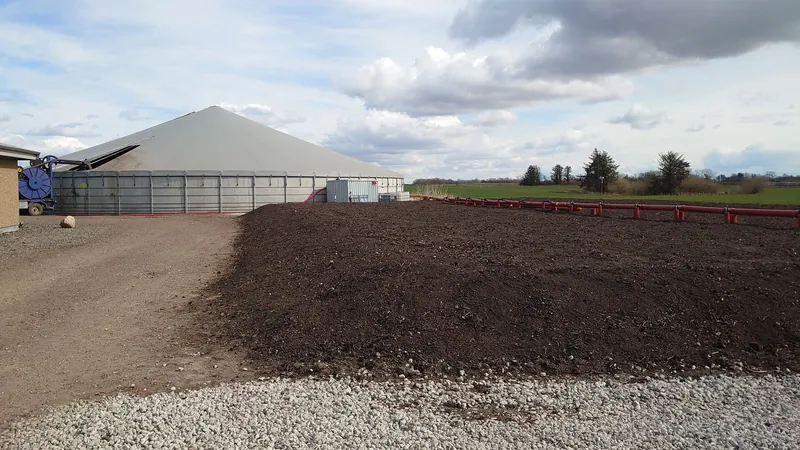
Revolutionary Bacteria Biofilter Slashes Methane Emissions from Danish Pig Farms
2024-12-09
Author: Sophie
Introduction
In an astonishing breakthrough, researchers in Denmark are tackling the environmental impact of its massive pig farming industry, which is home to nearly 11.5 million pigs as of spring 2024. Pork is deeply entrenched in Danish culture and dietary patterns; a 2021 survey revealed that one in three participants had enjoyed pork the night before. However, the methane emissions generated from pig manure are becoming a pressing environmental concern.
Methane, an incredibly potent greenhouse gas, is released during manure storage, particularly in slurry tanks. This need for innovative solutions has led to trials of biofilters in pig production — technologies that have previously shown success in reducing methane from landfills.
How the Biofilter Works
In 2020, a dedicated team of researchers from DTU Sustain began designing a biofilter specifically for pig farming. By 2022, they implemented this groundbreaking solution at a pig farm in Gilleleje, north of Copenhagen.
The biofilter consists of a half-meter deep excavation filled with stones, topped with an 80-centimeter layer of compost enriched with bacteria that thrive on methane. These bacteria actively break down the greenhouse gas as it passes through the compost, creating a sustainable and chemical-free system applicable to both organic and conventional pig farming.
At the Gilleleje farm, a sizable 400 m² biofilter was situated adjacent to a 4,400 m³ covered slurry tank. Equipped with sophisticated measurement tools, the researchers aimed to meticulously monitor methane reduction and filter performance. Upon pumping slurry gas from the tank and channeling it through the compost, an impressive 92% of the methane was degraded by the bacteria in the first year, far surpassing the anticipated 80%.
A Cost-Effective Solution
During the project, researchers managed to capture 75% of the methane emissions from the slurry tank. Although the remaining 25% escaped, the overall effectiveness still reflected a significant 69% reduction in methane emissions. This innovative biofilter system not only demonstrates remarkable efficiency but also proves economically advantageous.
The calculated “shadow price” for reducing emissions with this biofilter is approximately DKK 74 per ton of CO2 equivalents, starkly lower than the projected DKK 300 CO2 tax imposed by the Danish parliament. By 2035, taxes may rise to DKK 750 per ton, making the biofilter a much more economical alternative for pig farmers aiming to comply with climate regulations.
Future Prospects: Scaling Up
The initial success of the biofilter in Gilleleje has sparked renewed interest in scaling this technology across more pig farms. Researchers are now set to establish two additional biofilter systems at other farms later this year, buoyed by new funding aimed at maturing this promising technology.
With 2,399 pig farms currently operational in Denmark, understanding methane emissions across the industry remains a priority. DTU Sustain’s upcoming project will measure emissions across 18 farms, allowing for accurate estimations of Denmark's nitrogen and methane output from pig production.
In a world increasingly focused on sustainable livestock farming, this innovative biofilter technology could be a game-changer. This Danish initiative serves as a vital step toward reducing the carbon footprint of one of the country's beloved dietary staples—pork—while addressing the global climate crisis.
Stay tuned as we follow the biofilter’s journey toward mainstream adoption and its potential global implications in the fight against methane emissions from livestock farms!









 Brasil (PT)
Brasil (PT)
 Canada (EN)
Canada (EN)
 Chile (ES)
Chile (ES)
 España (ES)
España (ES)
 France (FR)
France (FR)
 Hong Kong (EN)
Hong Kong (EN)
 Italia (IT)
Italia (IT)
 日本 (JA)
日本 (JA)
 Magyarország (HU)
Magyarország (HU)
 Norge (NO)
Norge (NO)
 Polska (PL)
Polska (PL)
 Schweiz (DE)
Schweiz (DE)
 Singapore (EN)
Singapore (EN)
 Sverige (SV)
Sverige (SV)
 Suomi (FI)
Suomi (FI)
 Türkiye (TR)
Türkiye (TR)